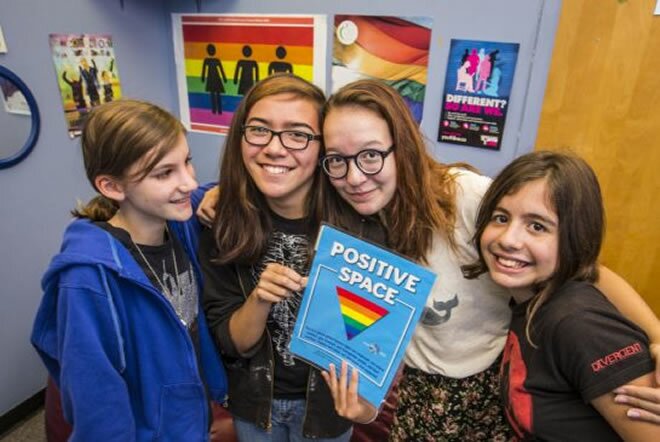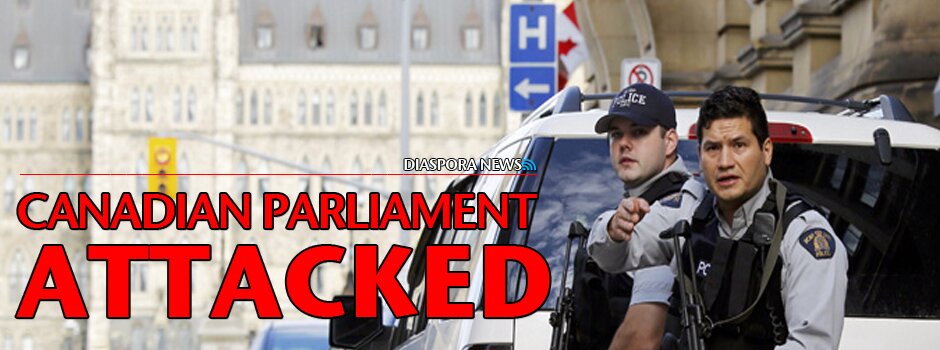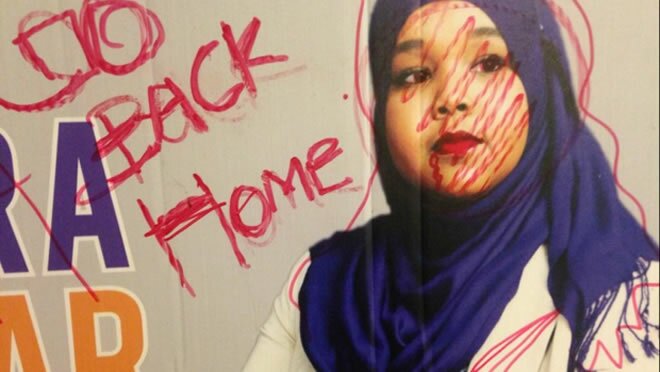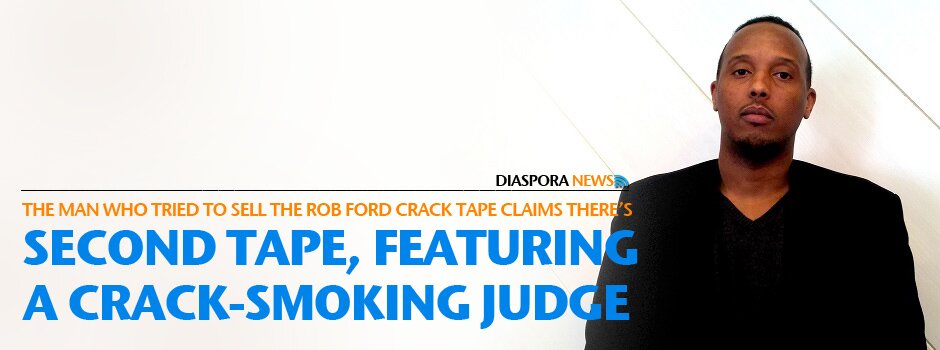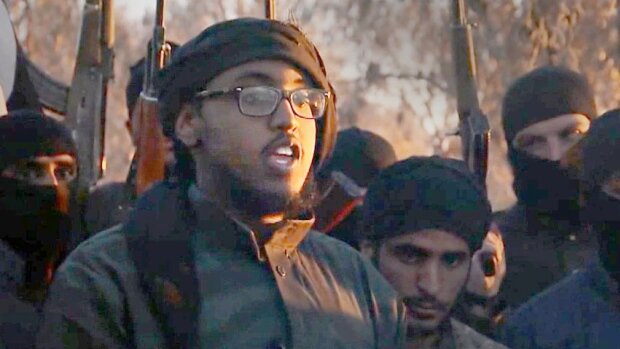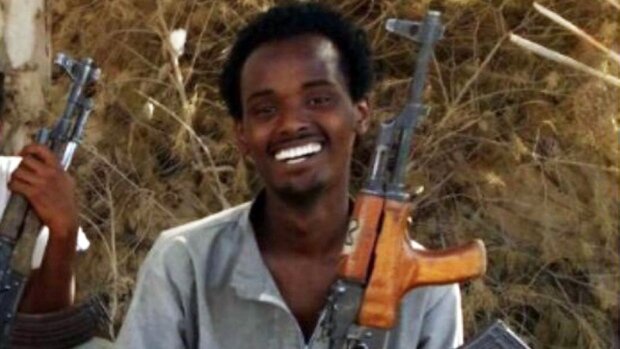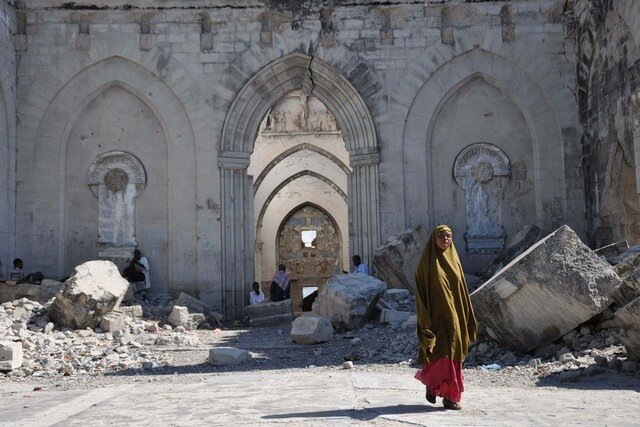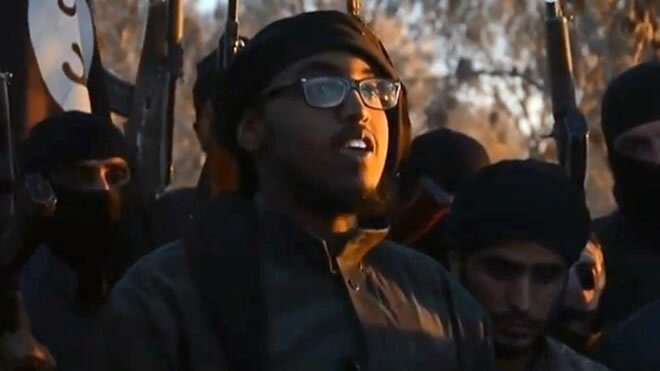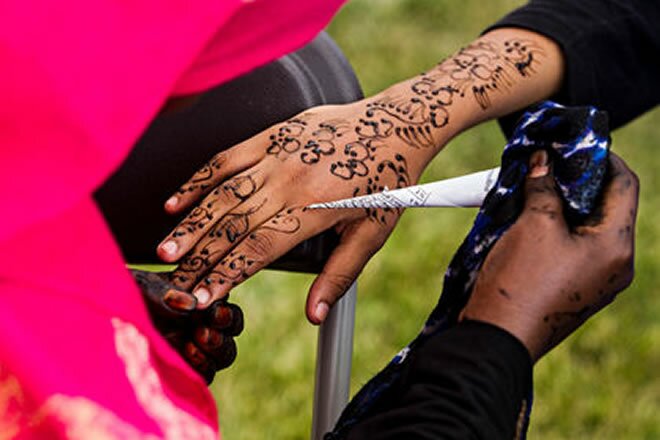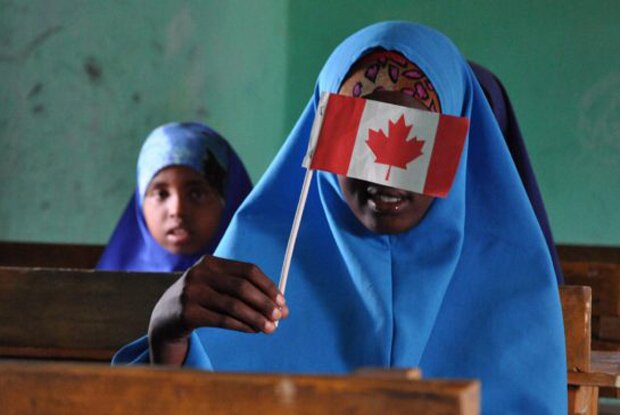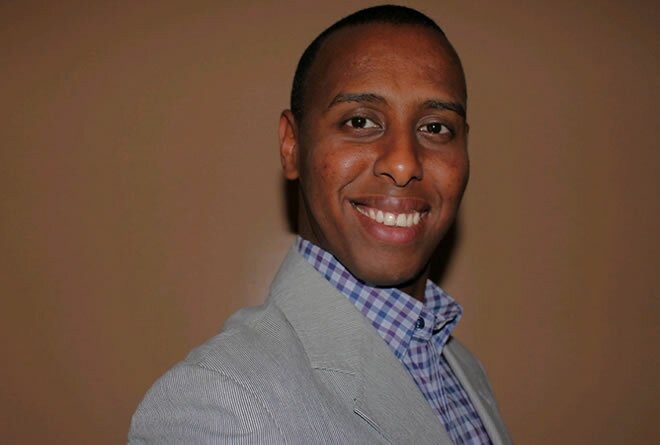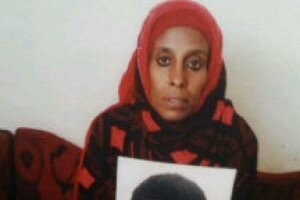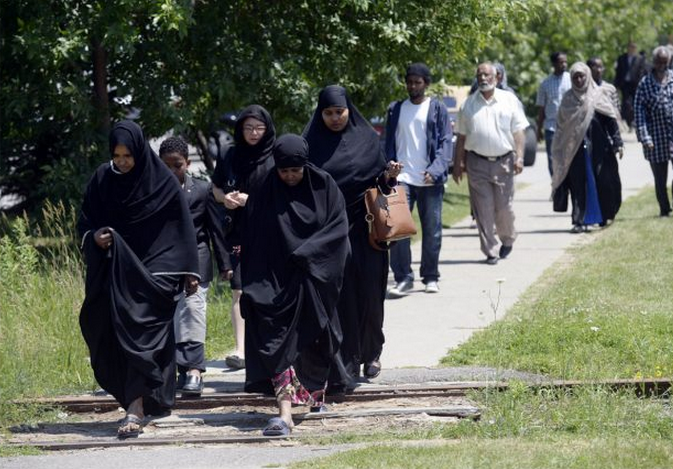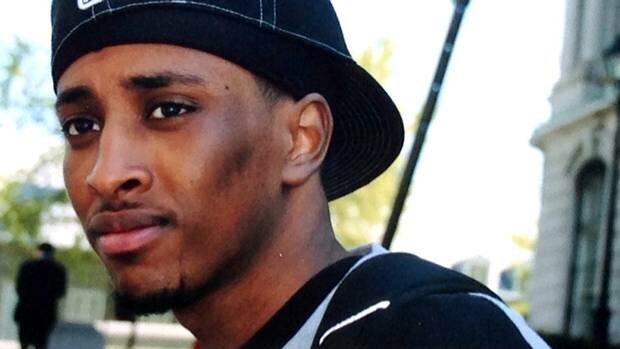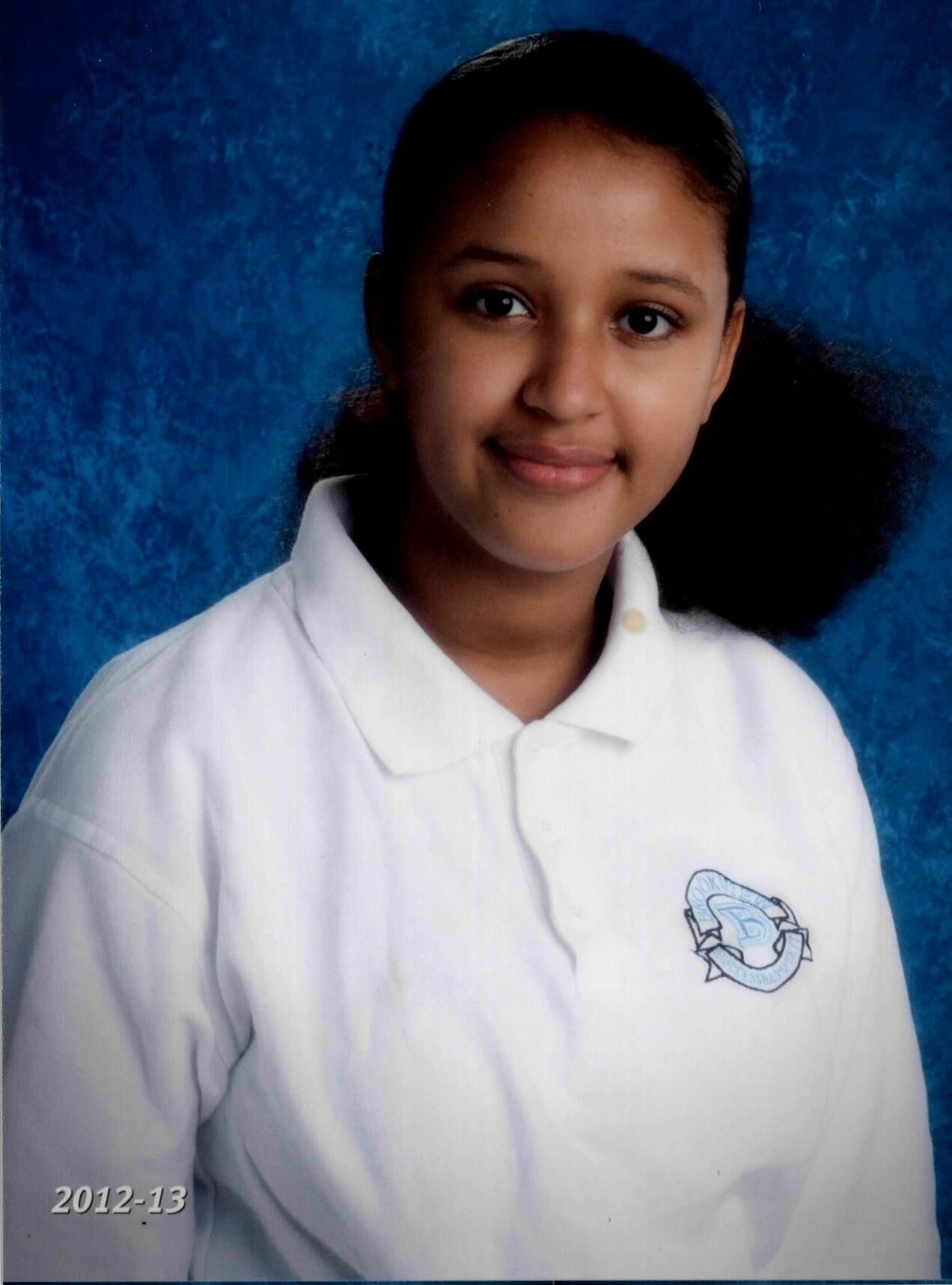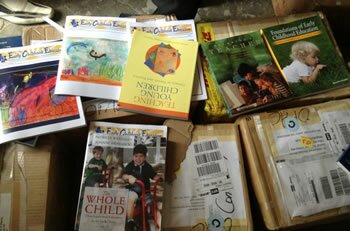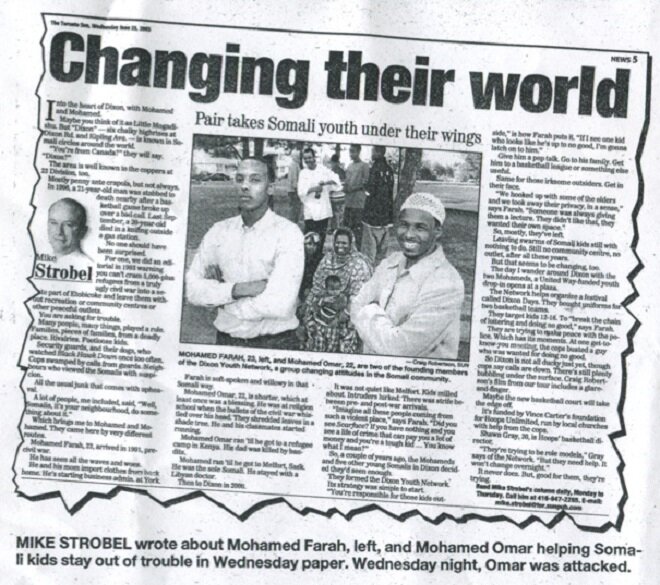The Man Who Tried to Sell the Rob Ford Crack Tape Claims There’s a Second Tape, Featuring a Crack-Smoking Judge
Earlier this week, Mohamed Farah, a community organizer from Toronto’s Dixon neighbourhood in North Etobicoke, contacted VICE Canada and offered us a tell-all interview. If his name isn’t familiar to you, Farah was the man who tried to broker the sale of the Rob Ford crack video to the Toronto Star and Gawker. He later appeared on CBC’s the fifth estate and again on City News in November 2013.
Our conversation with Farah led to an explosive allegation about a second video, which features an unnamed judge smoking crack on camera. Farah claims that he and his source, who filmed both videos, were more scared to break the news of the judge video than they were the Rob Ford video, because Rob Ford was, “known to be partying.”
If Farah is to be believed, he claims the same judge also offered the owner of the Rob Ford crack video help to broker a deal for the mayor’s infamous video, in exchange for keeping the judge out of the scandal.
VICE Canada reached out to the Toronto Police about allegations they seized a video of a crack-smoking judge during the Project Traveller raids. We’ve yet to recieve comment.
On top of that, Farah claims to be the man who Rob Ford was talking about when he was videotaped intoxicated while threatening “first-degree murder” on an unknown individual—a clip the Toronto Star released last November.
We also discussed the Dixon neighbourhood at length, and Farah’s own issues with the way it has been portrayed in the media. Farah has been well known in that neighbourhood as a force of peace and positivity, being at the helm of various community organizations that have, among other things, been fighting to establish a community centre for more than a decade.
What follows is our conversation with Mohamed Farah that has been edited for length and clarity.
So why don’t we start at the beginning. What was it like trying to bring the crack tape to the media? And how did you feel the first time you watched it?
People in the community knew beforehand about some of the activities he’d been involved in. So I wasn’t really shocked that there was a video out there. However, when I saw the video for the first time, it really was shocking to me. Just seeing it with your own eyes, seeing how he was behaving, what he was saying, that kind of stuff.
[Rob Ford was] a city councillor in the area before he was mayor of the city. During his time as a city councillor, he didn’t have any initiatives or policies or anything for the community to build a recreation centre or more after-school programs… And then after he became mayor, it’s been the same kind of narrative… to fight crime, war on drugs… But he’s always been involved in these kinds of [illicit] activities as well.
[The] kids that videotaped him, that were with him at that time, grew up under his regime. He tells people, ‘Oh, if you need a job, come to me and I’ll give you a job. I’ll give you a reference… If you need to get a house, give me a call and I’ll come help you get a house.’ Basically ‘Give me a call if there’s anything you need,’ right? But it doesn’t actually fix anything on the top level.
He depended on people on a one-on-one basis to keep calling him up… And there were people he depends on to go to for certain things. But it’s always been the status quo to keep people poor, not having any access to resources, and if you want anything, basically come to me and I’ll help you out. Why should I go to him for a job interview or to get a job when I could have a rec centre or get access to computers and all that kind of stuff I need? So that was kind of the buildup to the situation.
There was a bill that was passed in 2010 by the Conservative Government and this bill basically had the initiative to go after organized crime. However, the crime rate in Canada had been going down for a lot of years, we all know that. But somehow, I guess the police had to find a way to fill those missing links. So we saw activity, we saw a system where people were being locked away for petty crime, and they come back to the community as informants or we call them “CIs”—confidential informants. And these guys actually go over to the police to find evidence or organize other schemes…
So we just decided, if you get involved in a situation, you have a choice to be a victim of a bigger scandal or just come out and tell your story and let it blow over.
So when the Gawker article came out, when the Star article came out, what was the feeling like in your community?
[The Star] kind of outed us. They [printed] where we lived, what we looked like… So when the story broke in the community there was a witch-hunt—like, who’s behind this, who are the people who are involved in the situation?
Who was behind the witch-hunt? People in the community or people from outside the community?
Everybody had a reason to get mad. You had people in the community who… didn’t want that stigma from the media. So those people were mad. Then you had people who were loyal to [Rob Ford]—like I said, he had a dependency system where he’d get people employed in certain areas. And those people were on the frontline, Ford Nation. Some of them actually got ahold of me, and asked me questions about what was going on.
When you say “get ahold of you,” what do you mean?
Basically they knew who I was because a week before the story broke, Robyn Doolittle was hanging out in my neighbourhood. We went to a basketball game.
She probably stands out in Dixon.
She stands out. And so we’re at the game, she’s a reporter, and then a week later the story breaks and I’m with the same person. So they’re like, ‘We saw that girl with you. She’s a reporter, she was in the neighbourhood.’ I kind of denied it.
Did you go underground because of that?
I couldn’t go underground because if you did that…
Then they’d really know.
Yeah, yeah. Then you can’t tell anybody.
So when these guys were coming up to you, what were they saying?
[They were] trying to solve the issue. I guess some of them felt like if they did Rob Ford a favour, he would pay them back in favours. Some felt like, you know what, this is for my benefit, let’s just find a way to solve a problem.
So why was Robyn Doolittle at the basketball game the week before?
I invited her to the neighbourhood. I said, ‘Listen, why don’t you come by and see some of the guys and the [community outreach] program that we do. Take a look, this is what we are trying to do.’ Because I wanted her to understand the whole scope of the situation.
And let’s talk about that program a bit because an organization you work with, Inner City Union, is hosting a mayoral debate tomorrow night. You’re going to be on the panel representing Rexdale. Before we keep going into this scandal, what is your day-to-day role in the community?
The basketball program that we do is for youth in the neighbourhood. And the program actually expanded to the rest of the GTA. One of the coaches, one of the organizers went to Africa to participate in the FIBA tournament, which is a big tournament globally. They went to the finals because they represented a Somali city. They finished second place.
This Toronto team?
This Toronto team.
Amazing.
Yeah and that wasn’t put in the news, it wasn’t talked about. They made headlines in Africa and Europe… but nobody covered it here in Toronto.
I went back to the community in 2012. I’d been traveling, I’d been living in other places. So when I came back, a friend of mine approached me and said, ‘This situation’s getting hectic in the community. A lot of these kids are dying. Why don’t you come in and try to do a couple of programs with us?’ So I helped out.
We also did a partnership with the City of Toronto, the Police, TD—we did a program for little kids that were 13 to 15 years old. Unfortunately, that money disappeared. It was organized by the City of Toronto and the police were involved too. There’s people in the community who are gatekeepers. We have people in trustee positions, we have people in city parks, and they exploit the community in terms of resources…. They want to keep people in this economic condition. They want to keep people poor [in North Etobicoke, Ward 2, Rexdale].
So the articles come out, Project Traveller raids start, you were arrested. Take us through that process.
Before the raids happened, we kind of knew it was coming because we saw some of the signs. One of the signs is you get pulled over, you know you have a suspended license, but they let you go. If your tail light is broken, no one stops you. If there’s a lessened police presence in the area for a week or a couple of days, it’s the calm before the storm.
Why is that a sign?
Because they’re holding an investigation and they don’t want anybody coming in and they don’t want any interference. They want things to be cool before.
And they want to catch everyone at once.
Yeah. They want to catch everybody, all people at the same time.
[During the first raid] I got arrested early that morning, I got taken to a station and put in a cell for maybe 13 hours.
What were you charged with?
I was charged with weapon possession, I believe, proceeds to crime, and storing ammunition.
Have you ever owned a gun before?
No.
Did you see the gun that they accused you of possessing?
I saw a glimpse of it, yeah.
Were you surprised?
I was shocked, yeah. It looked like a big gun. It was something I hadn’t seen with my own eyes.
What kind of gun was it?
It looked like a 45-calibre Smith & Wesson.
And you’d seen guns in the community before obviously?
I hadn’t seen guns with my own eyes, no… I’ve never seen guns in my community.
You’ve known them to exist in your community though?
Definitely, yeah.
So how do you think a gun came into your apartment?
Most likely somebody that I knew left it there, but I’m not going to speculate.
Who was with you when you were arrested?
[My mom was] in the apartment as well. So me and her were in the apartment when they raided.
And she wasn’t cuffed, was she?
She was cuffed. She was cuffed and arrested.
Was she alright in the end?
Yeah, she was good. She’s a strong woman, she’s been through worse so she cool, she cool.
How long did it take you to get those charges dropped?
It took about a year to get them dropped. But the main thing was that when I was inside, I noticed that a lot of the people that were arrested were people I hadn’t seen before. Like I’d seen guys from the States, guys there from different parts of the city, and we’re all trying to figure out what’s going on.
If you ask, ‘OK, where are you from? How did you get involved in this?’ There was a pattern I noticed and the pattern was that they all had communication with individuals that were being [watched]. So if they called up that person, anything from that person or directed at that person, there was something to that whole raid.
By the way, there’s no such thing as a gang [called] the Dixon Bloods in my area.
You’re saying that’s an invention?
There’s no such thing as Dixon Bloods. Even the name doesn’t make any sense. When you say that you’re a gang, you rep a gang. You have gang signs, you have a territory, you have colours that you wear… That’s not in this neighbourhood… I’ve never seen a gang in our neighbourhood. I made sure my whole life that there would be no gang in my neighbourhood and we kept it that way.
There were active criminals in your community, though.
Listen man, if criminals mean a kid that is smoking weed or selling weed and gets caught doing petty crime, then perhaps. But if you’re talking about what they claim in terms of organized crime, conspiracy, with the smuggling of drugs, all that stuff, then no, it doesn’t exist in our neighbourhood.
And the guys who sold or wanted to sell the tape, made the tape, what was their affiliation?
It wasn’t ‘guys,’ it was probably one individual that I spoke to that I dealt with. It was a personal conversation between me and him, a personal thing between me and him. His friends, people that I knew, no one was happy with that, the way he went down.
I explained to him what was going on. I kind of told him, ‘Listen, if you have these kinds of interactions with these people, this is what you have to watch out for.’ And I guess, through conversations, he got scared. And he came to me and said, ‘Listen, I’ve got to talk to you about something.’ When he told me about the actual tape and [when] he told me the story behind the tape, I said, ‘Listen, you have two choices: you can either suppress it and leave the city or you can just come out and get a lawyer and try to bring this out.’ So we chose to bring it out, unfortunately it didn’t work out for him.
What was his relationship with Ford like before that, and how did he come into contact with him in order to film it? Was Ford just at the place where he did his drugs and your source happened to be around?
That’s the question I’m trying to figure out myself, like how did he get caught up with these guys? My assumption is that Ford had people that he was friends with that he used to go hang out with… But it’s so strange to me… I don’t know how all those people come together. I can’t tell you that either.
What kind of other high-profile figures were mixed up with this guy, if any?
[The] mayor, a judge…
You’re saying there’s a second video with a judge.
There’s a second video with a judge, yeah.
Is that the second video that’s been referenced by Bill Blair?
I believe that’s the second video that’s been referenced, yeah.
And how did you come to know that?
Because there were only two videos to begin with. There were two videos that were talked about: one was Rob Ford, one was the judge.
So you’ve personally seen the Rob Ford video.
That’s right.
Have you seen the judge video?
No.
Why haven’t you seen it?
I do not want to see it. I could have seen it if I wanted to. I didn’t want to see it.
Because you don’t want to know who the person is?
[My source and I] kept it on a need-to-know basis, because if I’m in a position where I’ve got to testify that I’ve seen the video, I’m not going to lie to anybody. So I said to him, ‘If I were you, I would sell the Rob Ford
… But don’t sell [the judge video], don’t get involved in that.’ He listened. But I’ve never seen it.
And you believe him entirely that the second video exists?
Yeah, I definitely do.
Because he wasn’t lying about anything else?
No, absolutely not.
And did he say anything about what was going on in that particular video?
No, he didn’t say anything about the video… He told me a story of how when he talked to the judge—it’s a female judge I believe—I guess she must have somehow found out that there was a tape of Rob Ford and a tape of them as well. I don’t know how they found out.
Before the news came out?
Before the story broke. The judge was trying to tell him, ‘Listen, don’t get me involved in this. If you want to sell the Rob Ford tape, I’ll sell it for you or help you sell the tape if you leave me out of it. And she tried to go find a buyer, but she couldn’t. The judge said, ‘Listen, I couldn’t find a buyer, but just keep your bargain. Leave me out of it.’ Something like that.
I don’t even know if the judge is [one of the people who] initiated the Project Traveler warrants. [But] I need to know because it matters to my community, it matters to the people who got caught up in the situation.
Did he seem more nervous about having the Rob Ford video or the judge video?
I think everybody was more worried about the judge video more than the Rob Ford video… nobody cares about Rob Ford. People knew about Rob Ford’s craziness before the story even broke out. No one cared about Rob Ford because he was known to be partying.
Why is it scary?
I mean because it’s a powerful person, someone who could have leverage.
So you’ve known about the judge video since May 2013?
Right.
It’s October 2014. What have you done since you found out about the judge video to try and get that information out?
To try to get it out? The only thing I ever did was, I mentioned the story once on the fifth estate and then after that, I never talked about it again.
You told the CBC and they cut it out?
For the fifth estate, yeah. They edited it out.
Why do you think that is?
I made a mistake on the title of the judge… I got them mixed up.
And the judge had previously purchased and smoked crack in that area?
I don’t know if the judge bought crack, but they had been on video smoking crack.
Why do you think this allegation hasn’t come out yet?
I think the implication is huge. [The Toronto Police] have had a rough year in terms of the Sammy [Yatim] shooting, [fallout from] the G20 protests, this would… be bad for the city.
It would. So going back to your neighbourhood, how long have you been trying to get things to a better place?
Well, I’ll give you guys some of the backstory to [all this]. 2003 was an election year. That was when I originally wanted to talk about having a rec centre for our community. I spoke to a guy at the Sun, his name is Mike Strobel, he’s a journalist. He did a piece about our [community] organization at that time. In that article, I specifically mention the need for these young people. [Those young people] are the same group of guys that are right now caught up in Project Traveler—they were like 12 or 13 at that time.
And you were saying that if these kids don’t get something productive to do, they’re going to be in trouble.
Exactly. They’re going to be in trouble.
And then after that piece was done, John Tory called me up and said, ‘I’ll help you guys get what you need. Help me, volunteer for my campaign.’ And I did, I volunteered for John Tory’s campaign in 2003 against David Miller. When the campaign was over, he lost, so I haven’t really seen him since. That same year, I kind of left that whole organization and started traveling.
In 2005, [I linked up with K’Naan]. He’s from [Dixon] as well. He did his first music video and we were friends. So I said, ‘Listen, that same issue that I had, why don’t you [meet] these kids to talk about the issues?’ So in the video, he’s talking about struggling and the exact same kids that were on the video were in Project Traveller. Like all the same characters that are on the news every day are in the same video.
So for the last 11 years you’ve been trying to call attention to the problem in Dixon?
Yeah, exactly.
What other parts of this story do you want to get out there?
The media part. The media part for me was very difficult and I’ll tell you why. As soon as the story broke, even though people knew the situation we were in, they pushed the envelope… For example, they aired out the person who shot the video. When I talked to Robyn Doolittle, she said, ‘There’s no way on Earth the Toronto Star would ever leak a source or give a source up. We’ll go to court, we’ll go on stand, we’ll do this and that.’ And they threw him under the bus, whoever that person was.
Without naming him, how would you describe the character who shot the video?
He didn’t have a criminal record before he got arrested, so that’s enough to describe him.
People can do criminal stuff but not have a criminal record.
I’m not saying he didn’t do criminal stuff, but I’m saying he must have been someone who was very careful, the way he carries himself… More business-oriented I would say. He’s a nice guy, he’s very approachable, very cool, very quiet, that kind of guy.
He wanted to change his life by the sound of it.
Yeah. He knew that he couldn’t maintain what he was doing and support a family.
So you have a bit of a bitter taste in your mouth with how Robyn Doolittle dealt with the story?
I don’t know if it was her or people pushing her, but the way the story was done, how everything came out, it’s not right. I felt like they thought they could get away with it. It’s going to blow over pretty fast, things are going to happen and he’s going to resign. It’s going to be old news. But he’s been on the media ever since, and his story keeps getting longer and longer.
The Star had to apologize for overusing the term “Somali” in their reporting.
It’s beyond racism. [They] mentioned the word ‘Somali’ and ‘crack’ about the same amount of times… Number two, we’re Canadian. I went home that same night and I watched CNN and they [said] ‘Somali Cartel’ with the [Rob Ford story]. And that’s on CNN, the most trusted news, or whatever they call themselves.
[The media] calls [Rob Ford] a racist and they say this guy’s a racist, a bigot, a homophobe, this and that. But they have these stereotypes that they push and they suppress their own information of certain realities. And they paint pictures in certain ways. I think that has to be addressed.
Are you upset with how you were characterized?
Not really. I think [Robyn] tried to make me look like a nice guy, which is good. I’m happy for that, but I’d rather be the dick, than for my community to come off as the bad people. It’s the other way around for me. Don’t make me look good, but then shit on my whole community, my friends, my family.
It makes Dixon seem like a very scary place.
It does, man, it does. And it’s far, far from it. I don’t know if you been there… You’re going to be shocked. You’re going to be like, ‘This isn’t the place I saw on the news.’ Because it’s far from it. It’s a really nice neighbourhood.
Is your community still missing a community centre?
We never had a community centre, ever. [Rob Ford is] a fiscally conservative guy so he doesn’t believe in building that kind of stuff in the neighbourhood. Apparently it’s a waste of money, or a hug-a-thug program, and all that kind of stuff.
For the 11 and 12 year-olds living in Dixon now, what kind of impression has all of this left?
That’s the question we have right now. [Since Project Traveller], people were angry mainly for two reasons: the effect it’s going to have in terms of the community’s [reputation] and what these kids see right now; and B.) The kids that are caught up in the whole justice and religious aspect of it might get radicalized now…
This is not a fair world, I don’t want to be part of a world where a judge or the mayor is smoking crack from my brother or cousin. Then they end up joining a radical group somewhere and go into that kind of stuff. That was the biggest fear in the neighbourhood.
Or kids are upset because, ‘They cuffed my mom.’
I mean, yeah, or, ‘They body-slammed my grandma,’ right? Actually, after the raid happened, they came back with a thing called Project Clean Slate. So basically they come in and broke the doors down, slammed people’s families and everything else. The next day it’s like, if you want a job being a police officer now… If you want to be a cop, here’s the application, we’re hiring.
Your kids want to hang out next Friday, let’s go to a Blue Jays game, right? Let’s do a little BBQ, let’s have a BBQ. How are you going to take me to a game when you just broke my house down? Fix my door first.
It’s nonsense, but I think there were some good cops in that situation who really knew what was going on and did a lot of work building relationships with people. One or two officers I would say made people feel that change was going to happen. But we’ll see how that goes.
Are you hopeful?
The change is already happening… There’s a young girl, Munira Abukar she’s doing it. She was actually born and raised in Ward 2. At 12, she was a tutor. She knew what was going on. At 18, she became part of the Toronto Community Housing Board. She was fighting Rob Ford as part of that board. She graduated from Ryerson, she’s going to law school, she’s running for city council—she’s the real deal. I never knew [someone like her] would come out of that situation. It’s like a flower from a concrete; you don’t see it happen, but she actually came from that. So the future of the area is very secure in terms of people stepping up and making a difference, and hopefully it continues.
Are there any other things that you feel we haven’t touched on?
The video where [Rob Ford] goes crazy. When the story broke, [Rob Ford] sent out people to go find the guys, so I guess someone must have given him my number to call. But he didn’t call my number, [one of his associates] tried to call me… when someone got ahold of me, it was to have a meeting with Ford, [one of his associates, and some] other people. I turned it down. I’m not going to meet on their turf.
[I said,] if they want to talk… let’s do it in a place that I’m comfortable with. They didn’t want to do that.
Can you say who the middleman is?
I can’t say who the middleman is. But that person came back to me a few weeks later and he’s like, ‘Yo, this dude [Rob Ford] is pissed. He wants to fight you.’ And I’m like, ‘He wants to what?’ He wants to fight me. Like why would he want to fight me? If he’s got issues that he wants to address, we can sit down like grown men and address the issues and try to resolve it. I’m not trying to get into a fistfight and get arrested again for hitting the mayor.’
So you think he’s talking to you in the video?
I’m pretty sure he’s talking about me in the video. He’s pretty pissed off.
What did you think when you saw that?
When I saw it—I came out of jail, bro—I had to laugh, man. But on the other hand… I took [it] very seriously—that’s a reason why I wanted to come out on the fifth estate… I had to go out there and show my face. I could have done it behind a veil, but I wanted to just let [the Fords] know if I talk about you in private, I’ll talk about you in public as well.
If you did meet with Rob Ford, what do you think the meeting would have been about?
I honestly don’t know. I think he’d probably try to buy me out maybe. Maybe try to intimidate me, I don’t really know. I can’t really call it. But it was kind of to suppress the video and he did a good job at suppressing it. I mean it really got suppressed afterwards.
Well no one’s seen the crack video.
No one’s seen it, exactly, yeah.
Does it still exist within your community?
There’s a million stories out there, so I really can’t call it.
Source: Vice News
Comments
comments
 Calendar
Calendar







